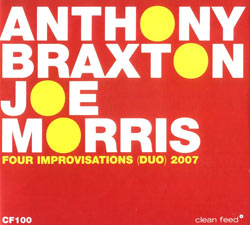
Clean Feed's 100th release is a 4-disc set of multi-reedist Anthony Braxton and guitarist Joe Morris, two masters playing completely improvised pieces.
Out of Stock
Quantity in Basket: None
Log In to use our Wish List
Shipping Weight: 8.00 units
Sample The Album:
Anthony Braxton-reeds
Joe Morris-guitar
Click an artist name above to see in-stock items for that artist.
UPC: 5609063001006
Label: Clean Feed
Catalog ID: CF100
Squidco Product Code: 9390
Format: 4CDs
Condition: New
Released: 2008
Country: Portugal
Packaging: Box Set
"This historic edition - Clean Feed's one hundredth release - is a four-disc set that features two extraordinaire musicians who before this session had never played together: multi-reedist Anthony Braxton and guitarist Joe Morris. "Four Improvisations (Duo) 2007" has other unique qualities. One is that Braxton has rarely recorded completely improvised pieces. More typically he plays compositions, his own or occasionally jazz standards, and improvises within their structures. His compositions can include open forms and spaces that require creativity of himself and his fellow musicians, but it is structured music. Morris, conversely, more frequently improvises freely, but he also often works within the parameters of composed pieces. On these discs, each one a continuous improvisation of approximately one hour, Braxton and Morris play free. We hear them discovering each other's thought processes and musical strategies, while negotiating common places to interact. This first-time, marathon meeting follows in the tradition of other the duos between collaborations between woodwind master players and six-strings virtuosos, such as Lee Konitz and Billy Bauer, John Coltrane and Kenny Burrell, and Evan Parker and Derek Bailey."-Clean Feed
Artist Biographies
• Show Bio for Anthony Braxton [Anthony Braxton (born June 4, 1945) is an American composer and instrumentalist.] "Genius is a rare commodity in any art form, but at the end of the 20th century it seemed all but non-existent in jazz, a music that had ceased looking ahead and begun swallowing its tail. If it seemed like the music had run out of ideas, it might be because Anthony Braxton covered just about every conceivable area of creativity during the course of his extraordinary career. The multi-reedist/composer might very well be jazz's last bona fide genius. Braxton began with jazz's essential rhythmic and textural elements, combining them with all manner of experimental compositional techniques, from graphic and non-specific notation to serialism and multimedia. Even at the peak of his renown in the mid- to late '70s, Braxton was a controversial figure amongst musicians and critics. His self-invented (yet heavily theoretical) approach to playing and composing jazz seemed to have as much in common with late 20th century classical music as it did jazz, and therefore alienated those who considered jazz at a full remove from European idioms. Although Braxton exhibited a genuine -- if highly idiosyncratic -- ability to play older forms (influenced especially by saxophonists Warne Marsh, John Coltrane, Paul Desmond, and Eric Dolphy), he was never really accepted by the jazz establishment, due to his manifest infatuation with the practices of such non-jazz artists as John Cage and Karlheinz Stockhausen. Many of the mainstream's most popular musicians (Wynton Marsalis among them) insisted that Braxton's music was not jazz at all. Whatever one calls it, however, there is no questioning the originality of his vision; Anthony Braxton created music of enormous sophistication and passion that was unlike anything else that had come before it. Braxton was able to fuse jazz's visceral components with contemporary classical music's formal and harmonic methods in an utterly unselfconscious -- and therefore convincing -- way. The best of his work is on a level with any art music of the late 20th century, jazz or classical. Braxton began playing music as a teenager in Chicago, developing an early interest in both jazz and classical musics. He attended the Chicago School of Music from 1959-1963, then Roosevelt University, where he studied philosophy and composition. During this time, he became acquainted with many of his future collaborators, including saxophonists Joseph Jarman and Roscoe Mitchell. Braxton entered the service and played saxophone in an Army band; for a time he was stationed in Korea. Upon his discharge in 1966, he returned to Chicago where he joined the nascent Association for the Advancement of Creative Musicians (AACM). The next year, he formed an influential free jazz trio, the Creative Construction Company, with violinist Leroy Jenkins and trumpeter Leo Smith. In 1968, he recorded For Alto, the first-ever recording for solo saxophone. Braxton lived in Paris for a short while beginning in 1969, where he played with a rhythm section comprised of bassist Dave Holland, pianist Chick Corea, and drummer Barry Altschul. Called Circle, the group stayed together for about a year before disbanding (Holland and Altschul would continue to play in Braxton-led groups for the next several years). Braxton moved to New York in 1970. The '70s saw his star rise (in a manner of speaking); he recorded a number of ambitious albums for the major label Arista and performing in various contexts. Braxton maintained a quartet with Altschul, Holland, and a brass player (either trumpeter Kenny Wheeler or trombonist George Lewis) for most of the '70s. During the decade, he also performed with the Italian free improvisation group Musica Elettronica Viva, and guitarist Derek Bailey, as well as his colleagues in AACM. The '80s saw Braxton lose his major-label deal, yet he continued to record and issue albums on independent labels at a dizzying pace. He recorded a memorable series of duets with bop pioneer Max Roach, and made records of standards with pianists Tete Montoliu and Hank Jones. Braxton's steadiest vehicle in the '80s and '90s -- and what is often considered his best group -- was his quartet with pianist Marilyn Crispell, bassist Mark Dresser, and drummer Gerry Hemingway. In 1985, he began teaching at Mills College in California; he subsequently joined the music faculty at Wesleyan University in Connecticut, where he taught through the '90s. During that decade, he received a large grant from the MacArthur Foundation that allowed him to finance some large-scale projects he'd long envisioned, including an opera. At the beginning of the 21st century, Braxton was still a vital presence on the creative music scene." ^ Hide Bio for Anthony Braxton • Show Bio for Joe Morris "Joe Morris was born in New Haven, Connecticut on September 13, 1955. At the age of 12 he took lessons on the trumpet for one year. He started on guitar in 1969 at the age of 14. He played his first professional gig later that year. With the exception of a few lessons he is self-taught. The influence of Jimi Hendrix and other guitarists of that period led him to concentrate on learning to play the blues. Soon thereafter his sister gave him a copy of John Coltrane's OM, which inspired him to learn about Jazz and New Music. From age 15 to 17 he attended The Unschool, a student-run alternative high school near the campus of Yale University in downtown New Haven. Taking advantage of the open learning style of the school he spent most of his time day and night playing music with other students, listening to ethnic folk, blues, jazz, and classical music on record at the public library and attending the various concerts and recitals on the Yale campus. He worked to establish his own voice on guitar in a free jazz context from the age of 17. Drawing on the influence of Coltrane, Miles Davis, Cecil Taylor,Thelonius Monk, Ornette Coleman as well as the AACM, BAG, and the many European improvisers of the '70s. Later he would draw influence from traditional West African string music, Messian, Ives, Eric Dolphy, Jimmy Lyons, Steve McCall and Fred Hopkins. After high school he performed in rock bands, rehearsed in jazz bands and played totally improvised music with friends until 1975 when he moved to Boston. Between 1975 and 1978 he was active on the Boston creative music scene as a soloist as well as in various groups from duos to large ensembles. He composed music for his first trio in 1977. In 1980 he traveled to Europe where he performed in Belgium and Holland. When he returned to Boston he helped to organize the Boston Improvisers Group (BIG) with other musicians. Over the next few years through various configurations BIG produced two festivals and many concerts. In 1981 he formed his own record company, Riti, and recorded his first LpWraparound with a trio featuring Sebastian Steinberg on bass and Laurence Cook on drums. Riti records released four more LPs and CDs before 1991. Also in 1981 he began what would be a six year collaboration with the multi-instrumentalist Lowell Davidson, performing with him in a trio and a duo. During the next few years in Boston he performed in groups which featured among others; Billy Bang, Andrew Cyrille, Peter Kowald, Joe McPhee, Malcolm Goldstein, Samm Bennett, Lawrence "Butch" Morris and Thurman Barker. Between 1987 and 1989 he lived in New York City where he performed at the Shuttle Theater, Club Chandelier, Visiones, Inroads, Greenwich House, etc. as well as performing with his trio at the first festival Tea and Comprovisation held at the Knitting Factory. In 1989 he returned to Boston. Between 1989 and 1993 he performed and recorded with his electric trio Sweatshop and electric quartet Racket Club. In 1994 he became the first guitarist to lead his own session in the twenty year history of Black Saint/Soulnote Records with the trio recording Symbolic Gesture. Since 1994 he has recorded for the labels ECM, Hat Hut, Leo, Incus, Okka Disc, Homestead, About Time, Knitting Factory Works, No More Records, AUM Fidelity and OmniTone and Avant. He has toured throughout the U.S., Canada and Europe as a solo and as a leader of a trio and a quartet. Since 1993 he has recorded and/or performed with among others; Matthew Shipp, William Parker, Joe and Mat Maneri, Rob Brown, Raphe Malik, Ivo Pearlman, Borah Bergman, Andrea Parkins, Whit Dickey, Ken Vandermark, DKV Trio, Karen Borca, Eugene Chadborne, Susie Ibarra, Hession/Wilkinson/Fell, Roy Campbell Jr., John Butcher, Aaly Trio, Hamid Drake, Fully Celebrated Orchestra and others. He began playing acoustic bass in 2000 and has since performed with cellist Daniel Levin, Whit Dickey and recorded with pianist Steve Lantner. He has lectured and conducted workshops trroughout the US and Europe. He is a former member of the faculty of Tufts University Extension College and is currently on the faculty at New England Conservatory in the jazz and improvisation department. He was nominated as Best Guitarist of the year 1998 and 2002 at the New York Jazz Awards." ^ Hide Bio for Joe Morris
7/1/2025
Have a better biography or biography source? Please Contact Us so that we can update this biography.
7/1/2025
Have a better biography or biography source? Please Contact Us so that we can update this biography.
Track Listing:
CD 1
1. Improvisation I
CD 2
1. Improvisation II
CD 3
1. Improvisation III
CD 4
1. Improvisation IV
Clean Feed
Improvised Music
Jazz
Anthony Braxton
Guitarists, &c.
Duo Recordings
Instant Rewards
Search for other titles on the label:
Clean Feed.


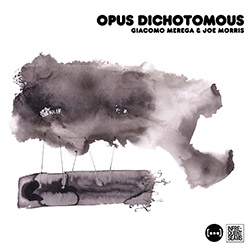




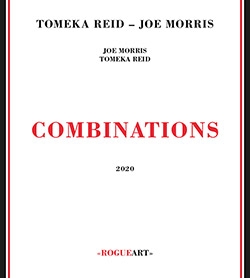
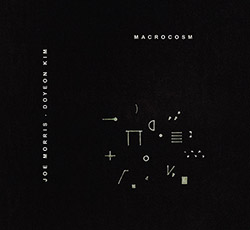

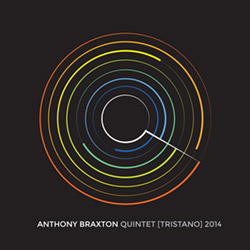


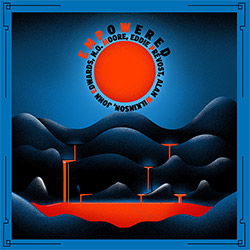
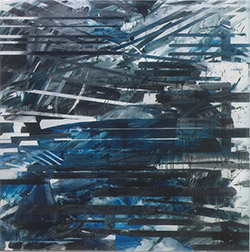
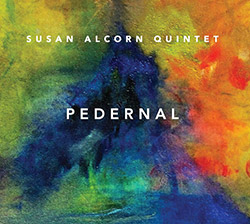





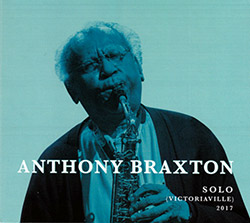





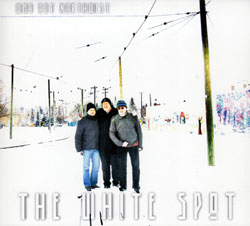










![Deupree, Jerome / Sylvie Courvoisier / Lester St. Louis / Joe Morris: Canyon [2 CDs]](https://www.teuthida.com/productImages/misc4/36404.jpg)


![Eternities: Rides Again [CASSETTE]](https://www.teuthida.com/productImages/misc4/36247.jpg)

![Lopez, Francisco: Untitled (2021-2022) [2 CDs]](https://www.teuthida.com/productImages/misc4/36438.jpg)




![Eventless Plot | Haarvol: The Subliminal Paths [CASSETTE + DOWNLOAD]](https://www.teuthida.com/productImages/misc4/36232.jpg)












![Eventless Plot | Francesco Covarino: Methexis [CASSETTE + DOWNLOAD]](https://www.teuthida.com/productImages/misc4/36231.jpg)



![Das B (Mazen Kerbaj / Mike Majkowski / Magda Mayas / Tony Buck): Love [VINYL]](https://www.teuthida.com/productImages/misc4/36329.jpg)



![Hemphill Stringtet, The: Plays the Music of Julius Hemphill [VINYL]](https://www.teuthida.com/productImages/misc4/36409.jpg)



![Halvorson, Mary Septet: Illusionary Sea [2 LPS]](https://www.teuthida.com/productImages/misc4/17952.jpg)






![Money : Money 2 [2 CDs]](https://www.teuthida.com/productImages/misc4/35894.jpg)




![Klinga, Erik: Elusive Shimmer [VINYL]](https://www.teuthida.com/productImages/misc4/36258.jpg)
![CHANGES TO blind (Phil Zampino): Volume 9 - I Wave on a Fine Vile Mist [CD + DOWNLOAD]](https://www.teuthida.com/productImages/misc4/36061.jpg)

![Wallmart / Rubbish: Asset Protection [split CD]](https://www.teuthida.com/productImages/misc4/35900.jpg)


![+Dog+: The Family Music Book Vol. 5 [2 CDs]](https://www.teuthida.com/productImages/misc4/35897.jpg)
![Kuvveti, Deli : Kuslar Soyledi [CASSETTE w/ DOWNLOAD]](https://www.teuthida.com/productImages/misc4/36107.jpg)

![Nakayama, Tetsuya: Edo Wan [CASSETTE w/ DOWNLOAD]](https://www.teuthida.com/productImages/misc4/36105.jpg)




![Yiyuan, Liang / Li Daiguo: Sonic Talismans [VINYL]](https://www.teuthida.com/productImages/misc4/35957.jpg)
![Brown, Dan / Dan Reynolds: Live At The Grange Hall [unauthorized][CASSETTE]](https://www.teuthida.com/productImages/misc4/36245.jpg)








![Palestine, Charlemagne / Seppe Gebruers: Beyondddddd The Notessssss [VINYL]](https://www.teuthida.com/productImages/misc4/36206.jpg)
![Palestine, Charlemagne / Seppe Gebruers: Beyondddddd The Notessssss [NEON GREEN VINYL]](https://www.teuthida.com/productImages/misc4/36207.jpg)

![Laubrock, Ingrid: Purposing The Air [2 CDs]](https://www.teuthida.com/productImages/misc4/35639.jpg)

![Yoko, Ono / The Great Learning Orchestra: Selected Recordings From Grapefruit [2 CDs]](https://www.teuthida.com/productImages/misc4/35841.jpg)









![Zorn, John / JACK Quartet: The Complete String Quartets [2 CDs]](https://www.teuthida.com/productImages/misc4/35609.jpg)

![Lonsdale, Eden: Dawnings [2 CDs]](https://www.teuthida.com/productImages/misc4/35480.jpg)



![Sorry For Laughing (G. Whitlow / M. Bates / Dave-Id / E. Ka-Spel): Rain Flowers [2 CDS]](https://www.teuthida.com/productImages/misc4/35985.jpg)

![Rolando, Tommaso / Andy Moor : Biscotti [CASSETTE w/ DOWNLOADS]](https://www.teuthida.com/productImages/misc4/36106.jpg)


![Electric Bird Noise / Derek Roddy: 8-10-22 [CD EP]](https://www.teuthida.com/productImages/misc4/35970.jpg)








![Elephant9 : Mythical River [VINYL]](https://www.teuthida.com/productImages/misc4/34624.jpg)



![Elephant9 with Terje Rypdal: Catching Fire [VINYL 2 LPs]](https://www.teuthida.com/productImages/misc4/35355.jpg)
![Deerlady (Obomsawin, Mali / Magdalena Abrego): Greatest Hits [VINYL]](https://www.teuthida.com/productImages/misc4/34876.jpg)







![Surplus 1980: Illusion of Consistency [CD]](https://www.teuthida.com/productImages/misc4/35069.jpg)
![Staiano, Moe: Away Towards the Light [VINYL + DOWNLOAD]](https://www.teuthida.com/productImages/misc4/35037.jpg)
![Coley, Byron: Dating Tips for Touring Bands [VINYL]](https://www.teuthida.com/productImages/misc4/17906.jpg)

![Lost Kisses: My Life is Sad & Funny [DVD]](https://www.teuthida.com/productImages/misc4/lostKissesDVD.jpg)